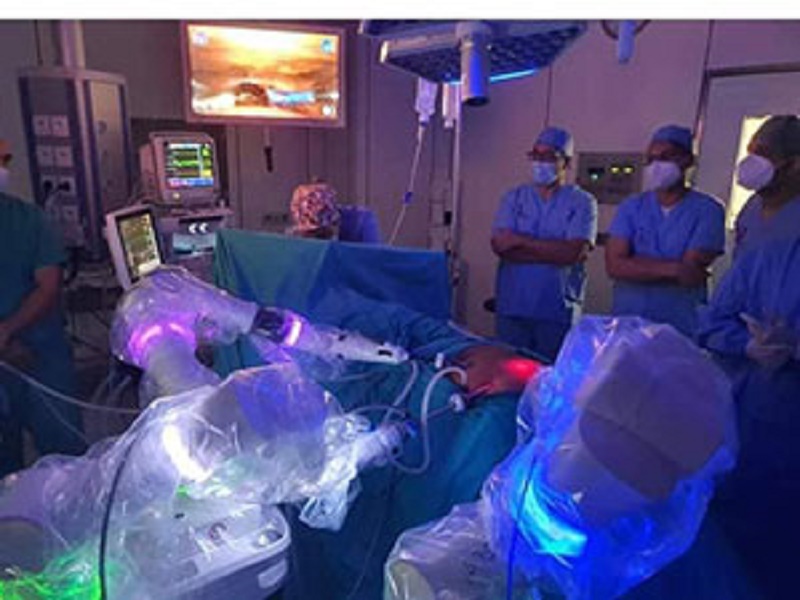The success of the first robotic cholecystectomy in Egypt at Ain Shams Specialized Hospital
Under the auspices of Prof. Dr. Mahmoud El-Metini, President of Ain Shams University, supervised by Prof. Dr. Ashraf Omar, Dean of the faculty of Medicine, Chairman of the University Hospitals Board of Directors, Prof. Dr. Ali Al-Anwar, Executive Director of University Hospitals, Prof. Dr. Walid Anwar, director of Ain Shams Specialized Hospital, Prof. Dr. Hisham Anwar, Deputy Director of the Specialized Hospital, and Prof. Dr. Tarek Youssef, Director of El Demerdash Surgical Hospital, successfully completed the first robotic surgery in Egypt to remove the gallbladder.
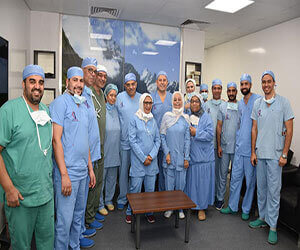 |
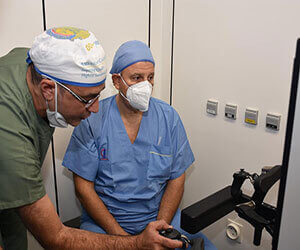 |
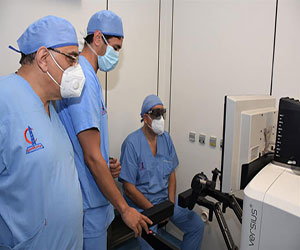 |
||
Prof. Dr. Mahmoud El-Metini, President of Ain Shams University, explained that the university was keen to introduce robotic surgery technology in its university hospitals, given that the introduction of this mechanism in the health system in Egypt enhances accuracy, flexibility and control
during surgical operations; It allows the surgeon to better see the site where the surgery will be performed, compared to other traditional techniques.Robotic surgery also helps in performing accurate and complex operations that may be difficult or impossible using other traditional methods. Thus, Ain Shams University Hospitals are distinguished by the application of the Robotic Surgery system.
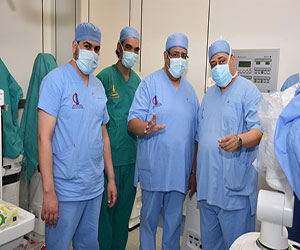 |
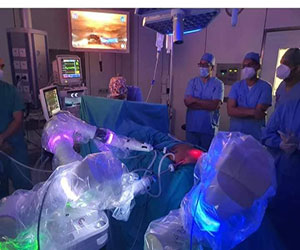 |
|
Prof. Dr. Mahmoud El-Metini added that the introduction of robotic surgery systems into the health system in Egypt is in line with the boom in the medical sector in recent years, which contributes to enhancing the implementation of the state's plans for sustainable development in accordance with Egypt's Vision 2030.
He pointed out that Ain Shams University did not start performing robotic surgery on a live patient until after completing all the equipment for the operation, as medical staff were trained in several stages, starting with virtual training, then pure training until all the steps of your surgery are ascertained.


.svg)

